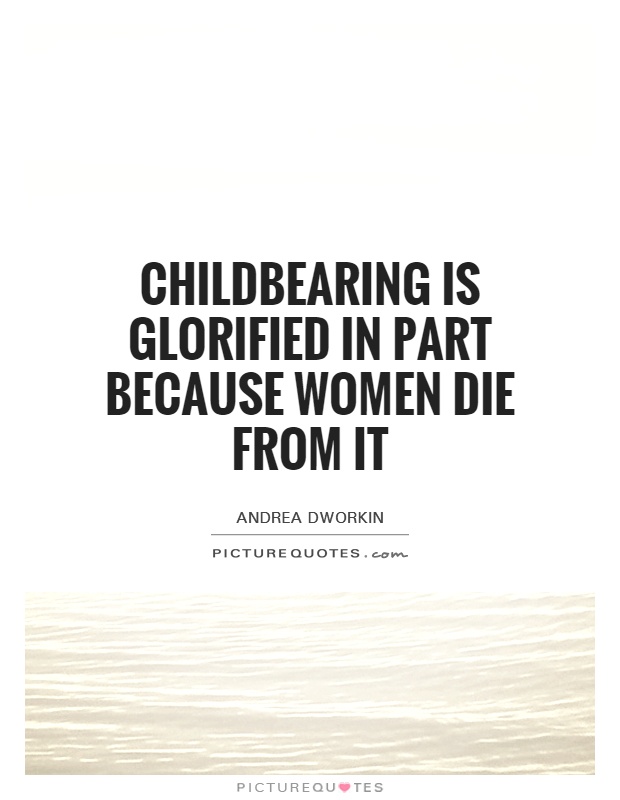Childbearing is glorified in part because women die from it

Childbearing is glorified in part because women die from it
Childbearing is often glorified in society as a beautiful and natural process that brings new life into the world. However, this glorification can sometimes overshadow the harsh reality that women can and do die from complications related to pregnancy and childbirth. This fact is often overlooked or downplayed, but it is an important aspect of the conversation surrounding maternal health and the risks that women face when they choose to become mothers.The idea that childbearing is glorified in part because women die from it is a troubling one, as it suggests that the sacrifice of women's lives is somehow necessary or acceptable in order to bring new life into the world. This mindset is not only dangerous, but it is also deeply rooted in patriarchal beliefs that prioritize the role of women as mothers above all else. Women are often expected to bear children and to do so without complaint or hesitation, even if it puts their own lives at risk.
The reality is that maternal mortality rates are still unacceptably high in many parts of the world, particularly in developing countries where access to quality healthcare is limited. Women in these regions are more likely to die from complications related to pregnancy and childbirth, such as hemorrhage, infection, or eclampsia, than women in more developed countries. This disparity is a stark reminder of the inequalities that exist in our global healthcare system and the urgent need for action to improve maternal health outcomes for all women.
In addition to the physical risks that women face during pregnancy and childbirth, there are also emotional and psychological tolls that can come with the experience. The fear of death or injury, the stress of navigating a complex healthcare system, and the pressure to fulfill societal expectations of motherhood can all contribute to a woman's overall well-being during this time. It is important to recognize and address these challenges in order to support women in making informed choices about their reproductive health and to ensure that they receive the care and support they need to stay safe and healthy throughout the childbearing process.












 Friendship Quotes
Friendship Quotes Love Quotes
Love Quotes Life Quotes
Life Quotes Funny Quotes
Funny Quotes Motivational Quotes
Motivational Quotes Inspirational Quotes
Inspirational Quotes